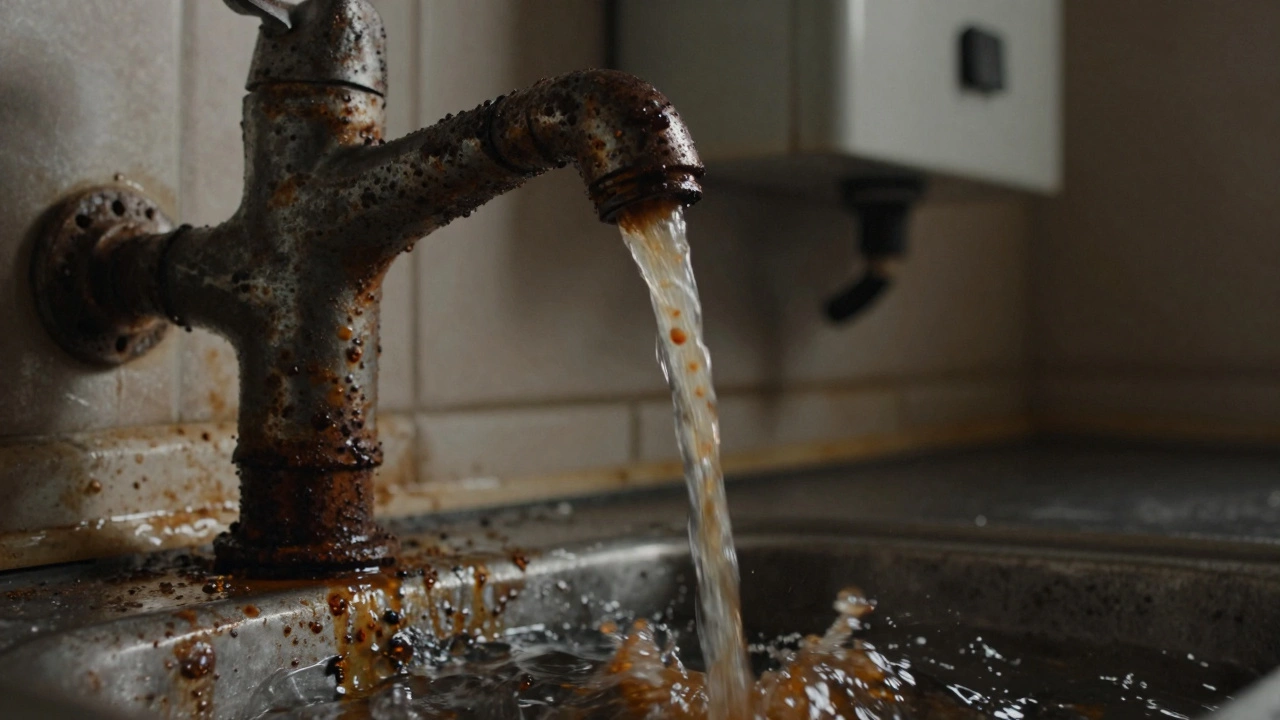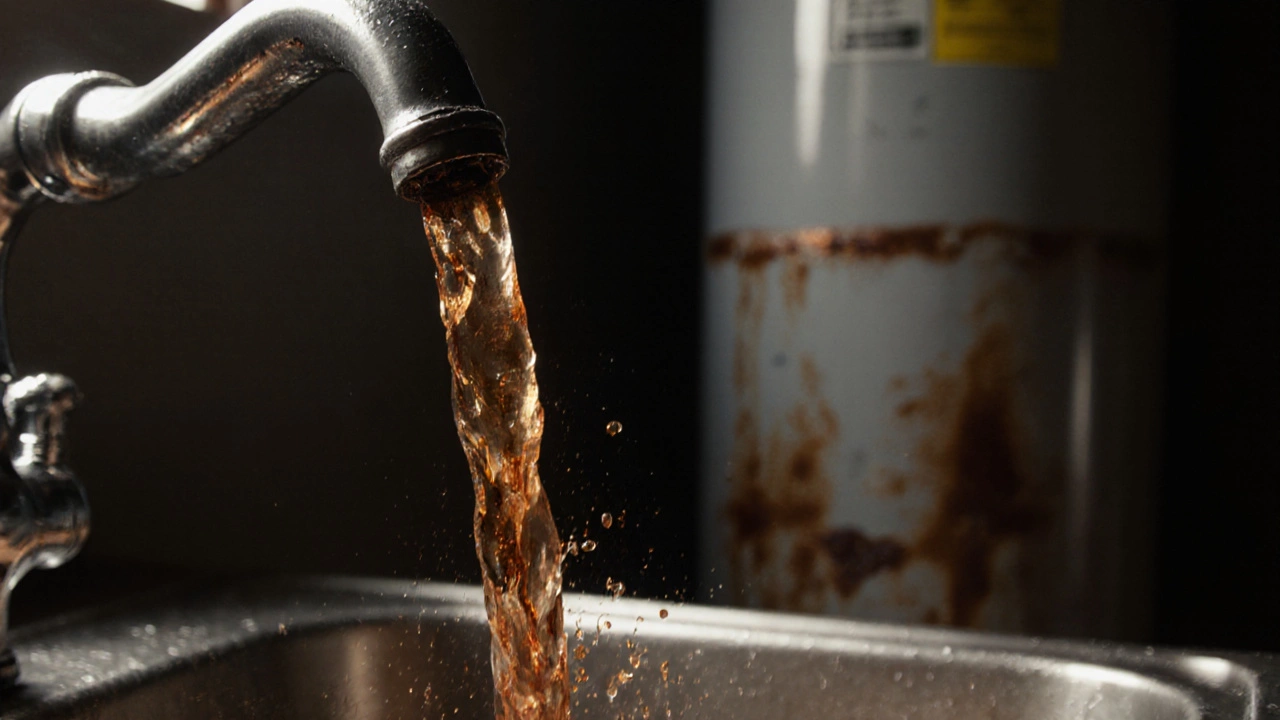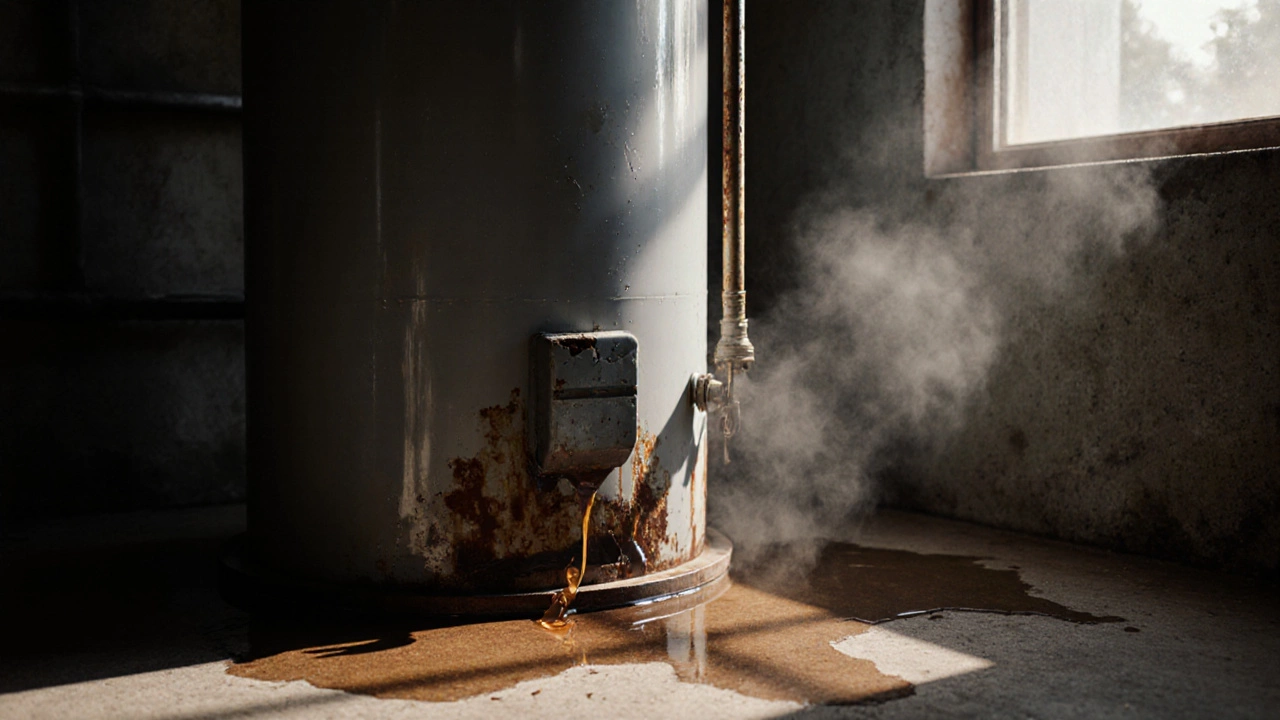
Watch for rusty water, leaks, strange noises, and high bills-these are the top red flags your water heater is failing. Know the signs before it breaks down and floods your home.
When you turn on the tap and see rusty water, discolored water caused by iron oxide buildup in pipes or water heaters. Also known as brown or orange water, it’s not just a visual issue—it’s a warning sign your plumbing or water heating system is breaking down. This isn’t dirt or sediment you can simply flush out. It’s corrosion, and it’s happening inside your pipes, tank, or water heater—places you can’t see without tools or professional help.
Water heater rust, the internal decay of the tank lining due to aging anodes or poor water quality is one of the top reasons you’re seeing this discoloration. If your water heater is over 10 years old, the glass lining inside may have cracked, letting water touch the steel tank. That’s when rust forms and leaks into your supply. Pipe corrosion, the slow breakdown of metal pipes from mineral buildup or acidic water is another big culprit, especially in older homes with galvanized steel pipes. These pipes were common before the 1980s and now, decades later, they’re turning your water the color of tea.
It’s not just about looks. Rusty water can stain your laundry, clog your dishwasher, and damage the internal parts of your fridge or washing machine. If you’ve noticed your dishwasher isn’t cleaning as well, or your washing machine is leaving brown streaks on clothes, that’s not a coincidence—it’s rust entering the system. Even if the water clears after running for a minute, the damage is still happening behind the walls.
Some people think it’s safe to drink rusty water because it’s just iron. But while small amounts of iron aren’t toxic, the real danger is what comes with it—bacteria, sediment, and the possibility of lead leaching from old pipes. If your home was built before 1986, your plumbing might contain lead solder or fixtures that corrode alongside the iron. That’s why you can’t ignore this problem.
Fixing rusty water isn’t always expensive, but it’s not a DIY job you can wing. Flushing the water heater helps if the rust is fresh. Replacing the anode rod can add years to your tank’s life. But if your pipes are the source, you’re looking at repiping—something only a licensed pro should handle. And if your water heater is leaking rust from the bottom? That’s not repairable. It’s time for a new one.
Below, you’ll find real-world fixes from local technicians who’ve dealt with this exact issue across South Shields. From how to tell if your water heater is the problem to when you need to replace pipes instead of just flushing them, these posts give you the straight facts—no fluff, no sales pitch. You’ll learn what to check yourself, what to call a pro for, and how to avoid the costly mistakes most homeowners make when they see brown water.

Watch for rusty water, leaks, strange noises, and high bills-these are the top red flags your water heater is failing. Know the signs before it breaks down and floods your home.

Watch for rusty water, strange noises, leaks, and rising bills-these are clear signs your water heater is failing. Know when to replace it before it breaks and floods your home.

Learn the real signs your hot water heater is failing-rusty water, strange noises, low hot water, leaks, and age. Don't wait until it breaks. Get ahead of failure with practical advice for New Zealand homes.